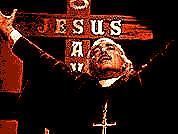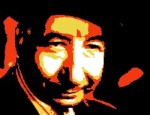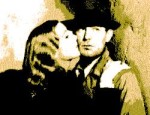Film Review
Trashy low budget horror films were very much in vogue in Britain in
the early 1970s, with many small-time film producers hoping to cash in
on the public appetite for the kind of cheap and lurid psycho horror
flicks that had been made popular by rival companies Hammer and
Amicus. Robert Hartford-Davis, one of the main players in the
exploitation school of British cinema, knocked out a few films in this
now pretty well reviled genre, of which
The Fiend is one of his best.
Today, it is virtually impossible to watch
The Fiend without cringing at the
film's obvious failings, which permeate just about every aspect of the
production. It looks bad in comparison with even Hammer's worst
offerings in the psycho thriller genre. The performances are
universally awful, with the notable exception of Tony Beckley, who had
a nice line in psychotic villains. Beckley, somewhere between
Michael Caine and Anthony Perkins, makes his character, a Norman
Bates-style killer, genuinely disturbing, yet also strangely
sympathetic.
Tony Bkeckley's performance is just about the only thing going for this
film. The direction is ham-fisted and uneven, ranging from the unbearably
stilted to the ludicrously hysterical. Although the film has a great
deal of physical violence, there isn't much in the way of tension,
and boredom sets in very quickly. The only reason to watch
The Fiend is to realise
how well-made Hammer's films were in comparison with what else was available at
the time.
© James Travers 2009
The above content is owned by frenchfilms.org and must not be copied.
Film Synopsis
Birdy Wemys and her son Kenny belong to a religious cult that regularly
worship at a chapel in their house. Whilst Birdy, an old woman
who is dependent on insulin injections, fights the good fight and
dedicates her life to saving lost souls, Kenny, a part-time security
guard and swimming pool attendant, spends his evenings killing young
women for the same goal. Journalist Paddy Lynch is writing a
series of articles on the murders when she learns about the mysterious
cult that Birdy belongs to, through her sister Brigitte, who is the old
woman's nurse. Paddy inveigles her way into Birdy's house and
stumbles across a collection of audio tapes which record the last
agonising minutes of each of Kenny's murder victims...
© James Travers
The above content is owned by frenchfilms.org and must not be copied.



